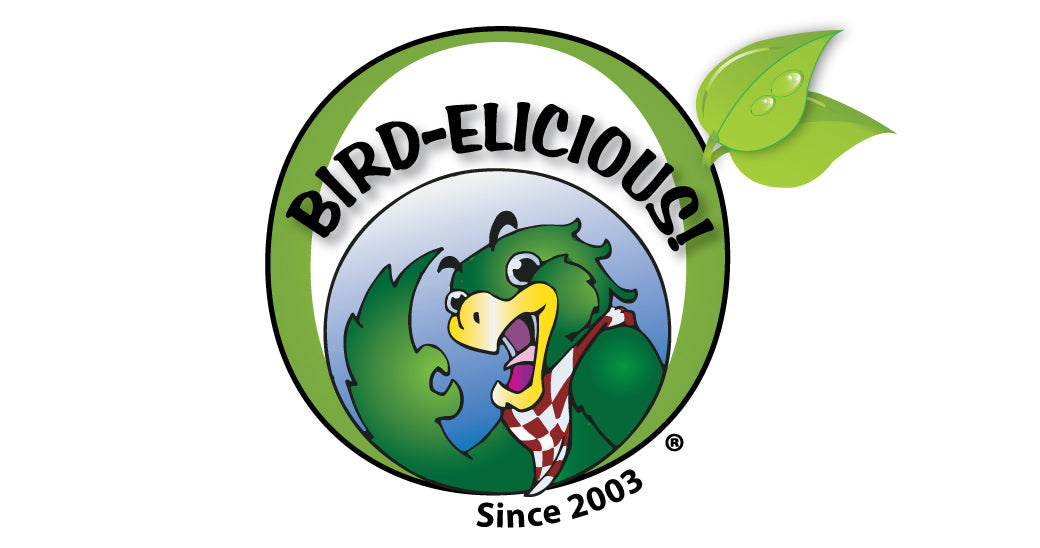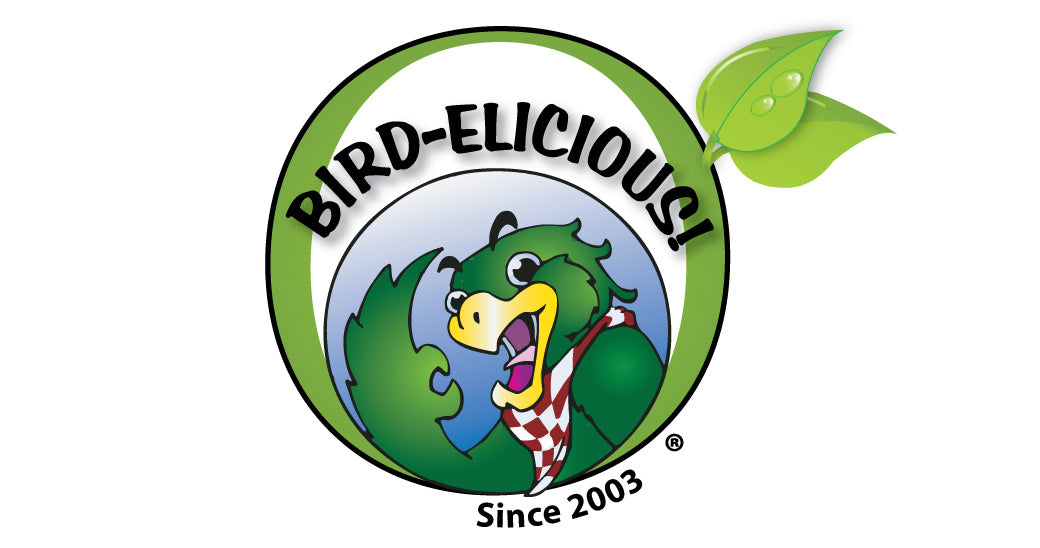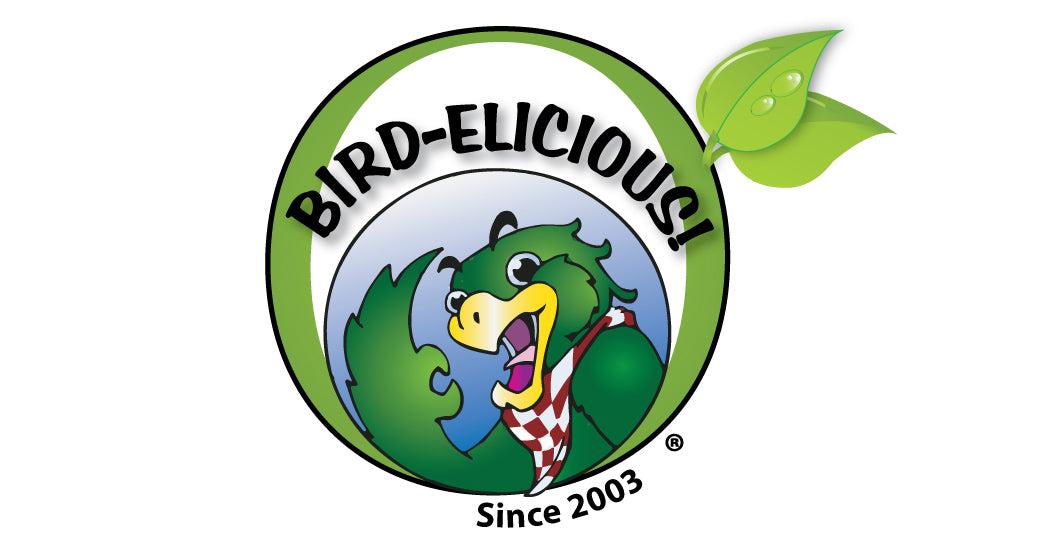Please join us in celebrating Caesar’s life.
Age at death: 17+ years.
Cause of death: Atherosclerosis.
Machelle Pacion
Avian Nutrition Specialist
Complete Necropsy: Performed. (Over $700.00 for a FULL necropsy-if you have a necropsy performed, understand that if you pay much less than this, it is not a full necropsy)
Results: Kidney Disease, Atherosclerosis
Caesar, one of our permanent residents at Providence Exotic Bird Sanctuary came to us 4+ years ago. The bird’s age at death was about 17+ years old. The previous diet, before arriving at our sanctuary was mainly a dry seed diet and commercial pellets. Once we received Caesar we started him on our Eclectus Origins Wild Diet. Once we had our Dirty Birdie Detox and Better Feathers feather destroyer’s diets lab-tested and available to feed to our flock, that diet became Caeser’s main diet along with some amount of fresh, organic foods.
For the most part, Caeser stopping engaging in feather destruction once he began consuming our feather destroyer’s diet on a consistent basis. In fact, at the time of Caeser’s death, he had finally started to grow in down and feathers! (Detox takes a long, long time for birds previously on questionable diets)

Dexter
Caeser, along with his flock mate, Dexter was highly exposed to the previous 2 owners’ cancer treatments: Radiation and Chemotherapy. Both caregivers had cancer at the same time, both receiving radiation and chemo and both constantly handling both birds in their care. Although Caesar and Dexter are different sub-species of Eclectus, one can see that both have suffered similar issues. Dexter is still with us. We received Dexter about two years before we received Caesar. Dexter is over 20 years old.
Caeser’s necropsy results returned with kidney disease and atherosclerosis. The veterinarian said he most likely succumbed to atherosclerosis, not kidney disease.
I will give my opinions later on Friday, December 8 or Saturday, December 9 by updating this blog post.
RIP our dear Caesar. You were a wonderful avian friend and will be sorely missed.
UPDATE 12.10.17:
Necropsy Opinion by Machelle:
It is fairly normal and usual for a bird who engages in feather destruction to be suffering from both liver, kidney, and heart disease/damage. Therefore I am not surprised at Caesar’s necropsy results. Some birds are able to detox with both their kidneys and liver become healthier than before detox started. Also, some reversal of damage is frequently seen in a bird’s cardiovascular system during detox. This has to do with chelation of arterial plaque from previously poor diets consisting of high amounts of cooked, highly processed grains, seeds, and legumes. All very high in starch. Starch turns to sugar in the body’s systems, combines with Omega 6s (a certain kind of fat) and creates this plaque buildup. If a large piece of plaque breaks off from the total plaque both stroke and/or heart attack may present. I believe this is part of the reason for Caesar’s sudden death. Even though we had slowly been working on the chelating of plaque from Caesar’s arteries there were two situations we were fighting overall; arterial plaque from previous poor diets and exposure to radiation.
Adding to sudden heart attack, I believe and my belief was confirmed that both the chemotherapy and radiation Caesar was exposed to played an even large part in his sudden death. In fact verbatim from the necropsy report: “These cardiac changes (atherosclerosis) are described in human/animal models from previous radiation exposure.”
Furthermore, something I have been researching and studying in feather destroyers: inflammation due to autoimmune disorders. Once inflammation sets in the reversal process is slow and tedious, as many of us have found through the detox process of our feather-destroying birds. Autoimmune disorders that cause inflammation are largely preventable simply by feeding a species-specific diet of raw, organic foods similar to those foods found in an exotic bird’s natural habitat in the wild. Yes, cardiovascular disease can be partially or completely eliminated if the patient is in otherwise good, general health. Caesar was not in good, general health due to radiation exposure. (Of course, my fear is that this will be the cause of death for Dexter, Caesar’s flockmate. Both came from the same home.)
While it is utterly impossible for any of us to obtain every indigenous food a parrot would consume in the wild, we can usually find raw, organic foods that are similar in their nutritional profile of those foods found in the wild. Exotic parrots, even those bred in captivity should, in my opinion, have raw, organic foods available at all times (may be gently dehydrated at 115 degrees or less). This would exclude highly processed grains, seeds, legumes that are processed with heat above 115 degrees. This means almost all commercial bird foods should be avoided.
It is absolutely imperative that all of us who care for exotic birds understand the importance of proper diet in light of the unique digestive tract of parrots compared to any other avian species. Furthermore, and very important, we must begin to understand how easily and well-absorbed external chemicals can be to a parrot. Simply touching a parrot when we have chemicals/pharmaceuticals in our system can mean eventual death to our beloved feathered friends. If any caregiver of a parrot is exposed to chemotherapy, radiation, or ANY pharmaceutical and that caregiver handles the bird, the bird is also receiving a dose of the same treatments/medications.
Finally, Caesar’s necropsy report indicates the normal for a deceased creature; congestion of many of his organs. This is simply nothing more than that which takes place at time of death. Congestion doesn’t have anything to do with the reasons for death. His lungs had some amount of hemorrhage. This is also normal. This happens simply due to dying. Caesar’s kidneys showed the normal congestion due to the act of dying, but they also showed some mineralization which is consistent with a lack of magnesium in his diet for many years prior to arriving at our sanctuary. Lack of magnesium can, and usually does lead to under-absorption, and calcification of calcium. Under-absorption of calcium and calcification of calcium normally takes place in the kidneys and cardiovascular system.
And to my surprise, no lesions were found in Caesar’s proventriculus, ventriculus, digestive tract or pancreas. This is an unusual necropsy finding; many birds show lesions in many organs. It could be that during the time Caesar resided in our sanctuary the detox diet he consumed potentially aided in the wound-healing of lesions potentially caused by dry over-processed pellets, a diet high in dry, dead and cooked grains, seed and legumes and too much cellulose in the overall diet.
Caesar was obviously on his way to healing, but due to exposure to radiation and poor diets for most of his life potentially leading to atherosclerosis, his body could no longer put up the fight it would take to overcome dire autoimmune disorders from so many years of poor diet, especially when combined with exposure to radiation.
Let this be a lesson for all of us, we may be able to reverse or eliminate some health problems our birds may encounter, but if we continue to expose our feathered friends to environmental pollutants, subject them to exposure of the pharmaceuticals we take for our own health problems, and do not understand their unique dietary needs, we are actively cutting our birds’ lives much shorter than Nature intended for these exotic creatures.
Cause of death bullet points:
- Primary: Atherosclerosis from exposure to radiation.
- Secondary: Heart attack due to calcification of arteries from poorly-absorbed calcium; lack of magnesium for much of his life.
- Mitigating Aggravating Factor: Less of a factor in Caesar’s death, kidney disease due to exposure to radiation and calcification of organs from poorly-absorbed calcium; lack of magnesium for much of his life. It was to Caesar’s benefit that kidney disease did not play a large part in his rapid decline. This indicates, at least for Caeser and maybe for other species of parrots, that his overall endocrine system may have been able to handle the poor diets he was fed for many years better than his cardiovascular system could handle the poor diets. Had Caesar’s kidneys suffered as much from radiation and poor diet as did his cardiovascular system, his life would have undoubtedly been shorter.
In the end: My conclusion in light of Caesar’s necropsy report is that both exposure to radiation and the lack of magnesium in his diet for years may have potentially lead to an earlier death than if he would have been exposed to only one or the other. If he had not been exposed to radiation, we may have been able to reverse arterial calcifications. If he did not have arterial calcifications due to lack of magnesium, and more well-absorbed calcium, then maybe the radiation would not have had such a devastating effect on his cardiovascular system. -Something for all of us to think about in regards to our feathered friends.
©12.2.2017 Passion Tree House LLC – All Rights Reserved




Leave a comment (all fields required)